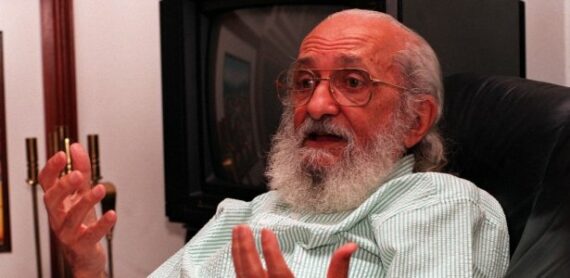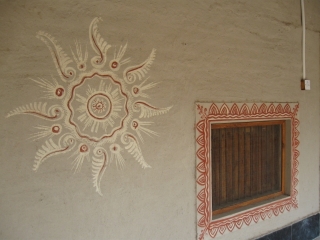Some parents really struggle. Like, “All the other kids have the terrible thing. So my kid has to have…No, let your kid go and be a better example to the other %^$# kids. Just because other stupid kids have phone doesn’t mean – “Well okay my kid has to be stupid otherwise she […]
Monthly Archives: July 2014
Elizabeth Rata is an Associate Professor in the School of Critical Studies in Education, University of Auckland. She was invited earlier this year, by the Azim Premji Foundation and University to present a paper titled Epistemic Knowledge and Democratic Politics in the 2nd International Seminar on Philosophy of Education, as well as to […]
The two years that I spent at the Azim Premji University were challenging and satisfying – and are fondly remembered. I was asked to speak to the batch of 2013 on their first day; and continue to receive queries about the university from prospective and new students. Below is the […]
While Joseph Rudyard Kipling is often remembered for his two Jungle Books and his poems, not many know that he also published a delightful collection of pourquoi stories titled, Just So Stories for Little Children. Kipling is said to have invented these stories as ingenious explanations of questions such as ‘How the […]
Everything’s amazing right now and nobody is happy. In my life-time the changes in the world have been incredible. When I was a kid we had a rotary phone. We had a phone that you had to stand next to. And you had to dial it. Do you realize how primitive (that […]
Progressive educators often lament the ‘culture of rote learning’ that prevail in Indian schools and class-rooms. The National Curriculum Framework, 2005 for instance, notes “Tasks that are…repetitive and mechanical, that are based on recalling the text, that do not permit self-expression and questioning by the child and that depend solely […]
An edited version of this article was published in Teacher Plus magazine (April, 2015 issue) under the title Understanding Peace Through Social Science. The centrality of peace for the present and future of humankind has received wide recognition over the last few decades. The United Nations Resolution 53/25 (1998), […]
Nobel laureate Rabindranath Tagore is most well known as a poet. However, he was also a remarkable short-story writer, dramatist and novelist, author of essays and lectures, philosopher, composer and singer, innovator in education and rural development, actor, director, painter and cultural ambassador. He wrote over 4000 letters between 1878 […]
Education for girls and women has been an important focus area for governments and policy makers in many developing nations, in the last few decades. Starting in the mid-1980s, especially after the framing of the National Policy of Education, 1986, the Indian government too initiated a number of measures to […]
He has been called “the Rousseau of the 20th century” (Bhattacharya 2008: 101), “the John Dewey of the present era” (Kanpol 1997: 13) and “the most important educator” (Carnoy 2004: 7) of the second half of the 20th century”.[1] His book, Pedagogy of the Oppressed, termed a “classic” and “a […]
Anand Niketan, Wardha is a remarkable school. Run in the same premises where Gandhi started an experiment in education in 1937, it draws inspiration from his educational philosophy; and is playing a leading role today in redefining Nai Taleem (also called Basic Education or Buniyadi Shiksha) within the purview of modern curricular and Boards’ requirements. What follows is an interview with Sushma Sharma, who was instrumental in restarting the school in 2005 and continues to lead its growth and development today.
Textbooks have historically been seen as storehouse of information and knowledge. Their ‘over-use’ however, has also drawn heavy criticism in the recent past from many educators who see textbooks as ‘being closed, stifling creativity, leading to teachers’ lack of autonomy and promoting an emaciated view of knowledge’. In this provocative […]
Anand Niketan, Wardha is a remarkable school. Run in the same premises where Gandhi started an experiment in education in 1937, it draws inspiration from his educational philosophy; and is playing a leading role today in redefining Nai Taleem (also called Basic Education or Buniyadi Shiksha) within the purview of modern […]











